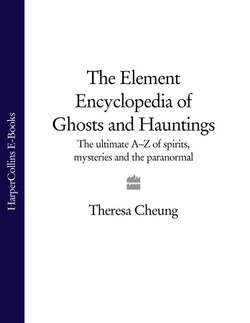Читать книгу The Element Encyclopedia of Ghosts and Hauntings: The Complete A–Z for the Entire Magical World - Theresa Cheung, Theresa Cheung - Страница 67
BLACK MAGIC
ОглавлениеThe use of supernatural and psychic power for evil ends, the opposite of white magic, which is concerned with healing and promoting what is good.
The term ‘black magic’ has been used with a wide variety of meanings and evokes such a variety of reactions that it has become vague and almost meaningless. It is often synonymous with three other multivocal terms: witchcraft, the occult and sorcery. The only similarity among its various uses is that it refers to human efforts to manipulate the supernatural with negative intent and the selfish use of psychic power for personal gain. Workers of black magic are thought to have but one goal: to satisfy their own desires at whatever cost to others.
Magic, good or evil, is universal, with no ethnic or racial association, and it is unfortunate that not just in Western civilization but many cultures around the world, good and evil have for centuries been denoted as white and black. White often designates healing, truth, purity, light and positive energy, while black is darkness, falsehood, evil and negative energy.
In modern times probably the most popular synonym for black magic is the occult. Originally the term meant hidden, hence mysterious, and was routinely used by classical and medieval scholars to refer to ‘sciences’ such as astrology, alchemy and kabbalah, but from the late nineteenth century, when magical sects such as the Order of the Golden Dawn emerged, the term began to take on the meaning of evil or satanic. Perhaps the best-known occultist and black magic practitioner was Aleister Crowley (1875–1947), who dubbed himself the Antichrist. More than any other person Crowley gave the occult an evil connotation.
